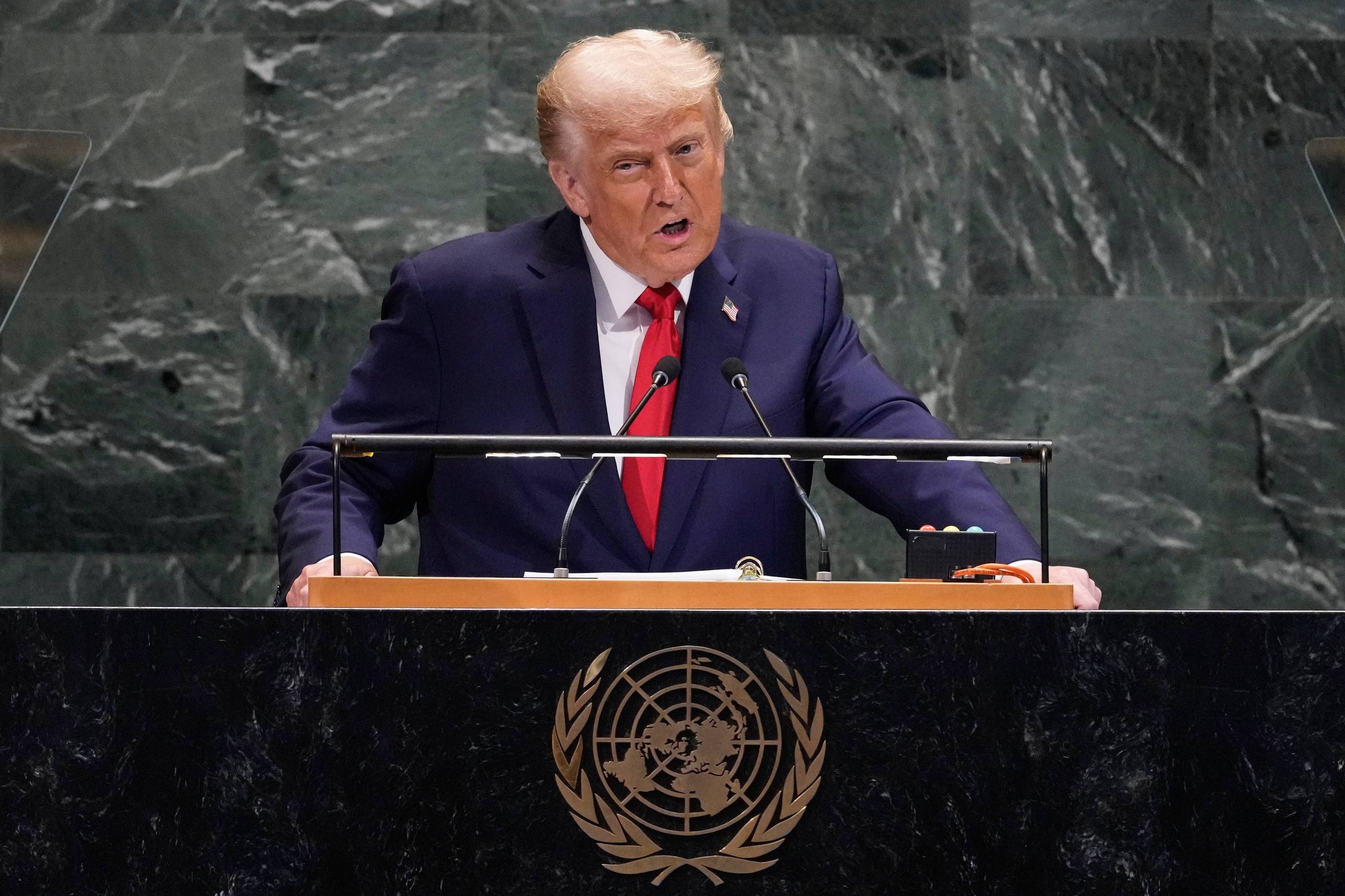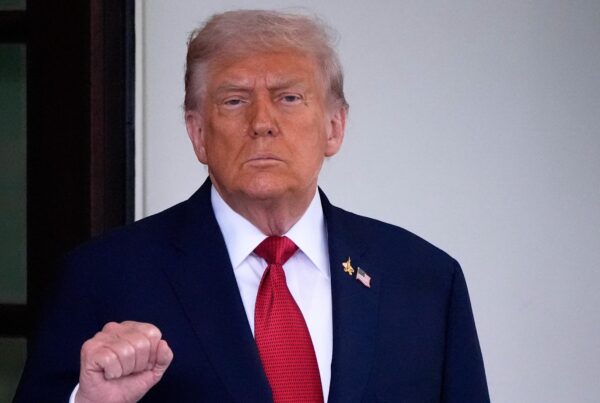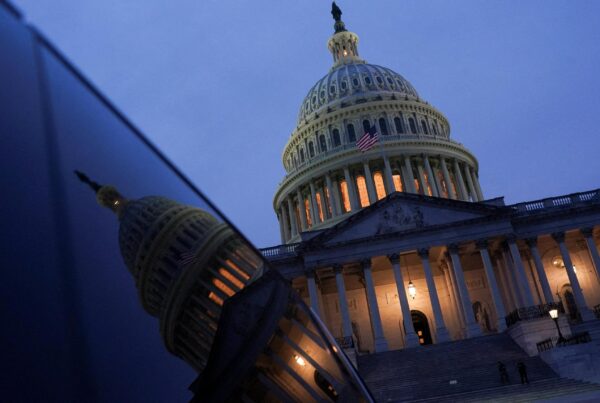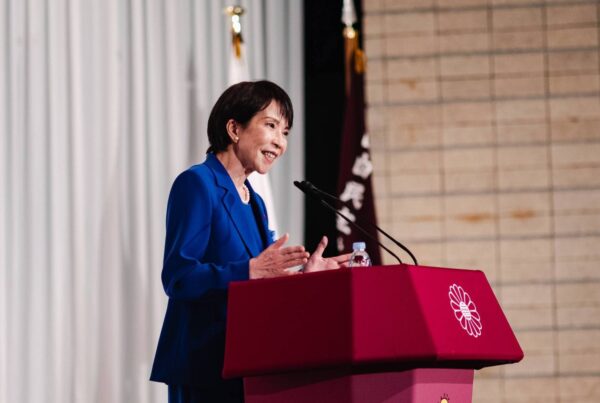US President Donald Trump once again sparked controversy in an international forum. In his speech at the United Nations General Assembly, he called climate change “the greatest con job ever perpetrated on the world.” His remarks immediately triggered sharp reactions from world leaders, scientists, and environmental organizations who stressed that the climate crisis is not an illusion but a real threat already causing global impacts.
At the same time, more than one hundred countries used the UN platform to reaffirm their commitment to cutting carbon emissions and accelerating the clean energy transition. China, the European Union, and several developing nations seized the moment to announce new targets. In sharp contrast to Trump’s rhetoric, most world leaders appeared to send a clear message: the course of history is set, and climate action cannot be delayed.
Global Reaction to Trump’s Speech
Trump’s declaration that climate change is a “con job” was not entirely new. Since his previous term, he has often cast doubt on scientific data regarding global warming. This time, however, his remarks came in the most prestigious diplomatic forum, amplifying their reach and drawing direct responses from other nations.
Many world leaders warned that Trump’s statements were dangerous. They argued such rhetoric could weaken global solidarity in facing the urgent challenge of climate change. UN Secretary-General António Guterres emphasized that the world has no choice but to accelerate climate action if the Paris Agreement targets are to remain within reach.
Scientists’ Criticism of Trump’s Claims
Scientists quickly responded to Trump’s remarks. Professor Corinne Le Quéré of the University of East Anglia said that dismissing climate projections as the work of “stupid people” was misleading and far from scientific reality. She stressed that evidence of climate change is already visible in the rise of global average temperatures, Arctic ice melt, and the frequency of extreme weather events.
The Intergovernmental Panel on Climate Change (IPCC) also rejected Trump’s rhetoric. Their decades of data show a consistent match between climate models and actual observed trends. Environmental scientists warned that downplaying scientific evidence risks delaying global action that is already lagging behind its targets.
Non-governmental organizations such as Greenpeace and WWF issued strong statements. They insisted Trump’s claims were not only false but could embolden other countries to loosen their commitments. This was seen as a serious threat to the painstakingly built multilateral agreements.
Political Impact Worldwide
Geopolitically, Trump’s speech signaled that the United States under his leadership would take a confrontational stance toward the global climate agenda. Many analysts noted this could weaken US influence in international diplomacy.
Paradoxically, Trump’s rhetoric also galvanized other countries to demonstrate their commitment to climate action. Several European diplomats said, “If the US steps back, the rest of the world must move further to fill the gap.” This determination was reflected in the swift release of new emissions-cutting plans by EU countries.
Countries’ Commitments
Despite the spotlight on Trump, most nations presented the opposite stance. They underlined that climate change has become a global priority that cannot be ignored.
The European Union, for instance, announced plans to update its emissions-reduction targets ahead of the COP30 climate summit in Brazil. Member states agreed to speed up the clean energy transition by expanding investments in renewables.
Meanwhile, China made a historic announcement. The world’s largest carbon emitter declared a new target: reducing emissions by 7 to 10 percent from its projected peak by 2035. Beijing also pledged to boost wind and solar capacity and expand adoption of zero-emission vehicles.
Europe’s Concrete Steps
European countries stressed they were backing up their pledges with real action. Germany and France highlighted that billions of euros have already been invested in renewable industries. These efforts aim not only to reduce emissions but also to create new green jobs.
In addition, the European Commission is preparing stricter carbon taxation policies. This scheme is designed to ensure that high-emitting industries pay an environmental cost proportionate to their output. The initiative is seen as a model for balancing economic growth with ecological responsibility.
The EU also pushed for stronger partnerships with developing nations. They emphasized the importance of technology transfer and financial aid so resource-limited countries can contribute to global efforts. Such collaboration was deemed crucial to ensure no country is left behind in the energy transition.
China’s New Policies
China used the UN platform to assert itself as a leader in green energy. The government emphasized that sustainability is not only a moral choice but a strategic necessity to safeguard long-term stability.
Beijing announced major incentives for the renewable energy sector. Subsidies and new regulations were introduced to speed up the development of solar power plants and offshore wind farms. These policies also aim to fuel the rapid growth of the booming electric vehicle industry.
For China, this move strengthens its position in global supply chains. By dominating solar panel and battery technology, they aim to capture the international clean energy market. Analysts noted this was also a political message to Trump: even if America doubts climate science, Asia is ready to take global leadership.
The UN’s Role and Global Hopes
Amid diverging stances, the UN worked to keep momentum alive. Secretary-General Guterres stressed that time is running out to keep global warming below 1.5 degrees Celsius. He urged nations to raise their ambition before the next major climate conference.
The UN also highlighted the need for cross-sector collaboration. They encouraged private sector involvement, financial institutions, and civil society to support the energy transition. According to Guterres, without the participation of all stakeholders, global targets will remain out of reach.
Environmental Groups’ Responses
Environmental organizations viewed this UN session as a major test for the world. While Trump sought to obscure scientific consensus, most countries showed the opposite direction. Greenpeace argued the moment must prove that climate denialist politics is outdated.
WWF stressed the importance of climate justice. Developed countries were urged not only to pledge but to deliver funding for the most vulnerable developing nations. They warned that climate change is not a distant issue since its impacts are already evident on the ground.
Friends of the Earth added that climate action must go beyond promises. They demanded transparency in policy implementation so the global public can assess how far governments are meeting their commitments.
Implementation Challenges
Despite new commitments, analysts warned that real-world implementation remains fraught with challenges. Many nations still face conflicts between short-term energy demands and green transition goals.
Financing remains a central issue. Developing countries often struggle to fund clean energy infrastructure. This is why the long-promised $100 billion per year in climate finance from developed nations remains highly anticipated. Without it, many countries risk failing to meet their targets.
Trump’s claim that climate change is a hoax has clearly failed to halt global momentum. This year’s UN General Assembly showed that the world is increasingly united in facing the crisis. From Europe to Asia, leaders sent a clear message: climate action is non-negotiable.
In the end, the divide highlights a new geopolitical dynamic in environmental issues. If the United States chooses its own path, other nations seem ready to lead. The global public now waits to see if these commitments will translate into real action. To follow more on the geopolitical impacts of climate policies, readers can continue exploring related articles on Olam News.






